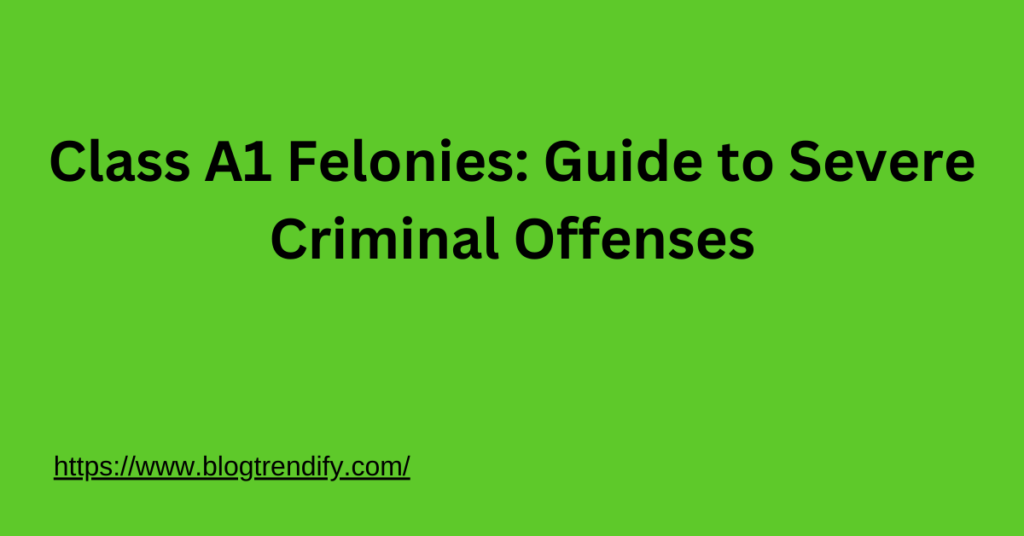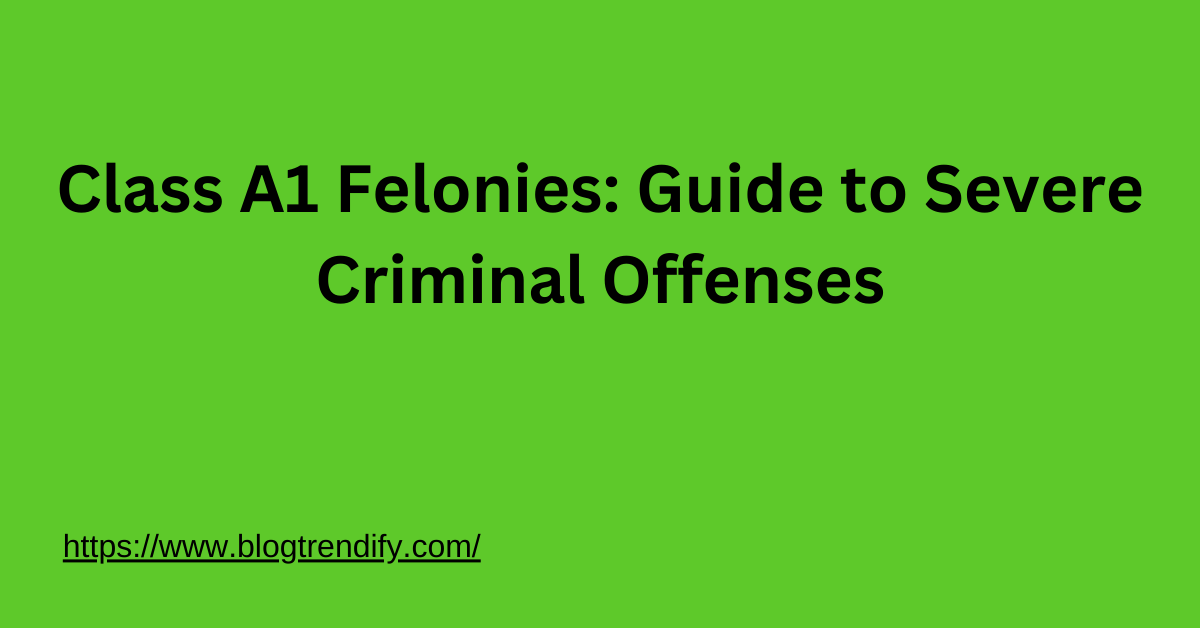Class A1 Felonie: A Comprehensive Guide
Table of Contents
ToggleWhat Are Class A1 Felonies?
Class A1 felonies represent the most severe category of crimes under the felony classification system in many jurisdictions. These crimes often involve deliberate harm to individuals or society and carry the harshest penalties, including life imprisonment or even capital punishment in some cases. Understanding the nature of these offenses is crucial for legal professionals, law enforcement officers, and citizens.
Characteristics of Class A1 Felonies
Class A1 felonies share several defining characteristics:
- Severity of the Crime: These offenses typically involve severe harm or the threat of severe harm to others.
- Intent: The perpetrator often acts with clear intent or premeditation.
- Penalties: Sentences for Class A1 felonies include lengthy prison terms, hefty fines, and sometimes the death penalty.
Examples of crimes categorized as Class A1 felonies include murder, aggravated sexual assault, and acts of terrorism.
Examples of Class A1 Felonies
1. First-Degree Murder
First-degree murder involves the intentional and premeditated killing of another person. This crime is universally regarded as one of the gravest offenses due to its deliberate nature and irrevocable consequences. Convictions for first-degree murder often result in life imprisonment or capital punishment, depending on the jurisdiction.
2. Aggravated Sexual Assault
This crime involves sexual assault coupled with additional aggravating factors, such as the use of a weapon, infliction of severe physical harm, or targeting of particularly vulnerable victims, such as minors or the elderly. Penalties include decades-long imprisonment and mandatory registration as a sex offender.
3. Kidnapping with Aggravating Circumstances
Kidnapping becomes a Class A1 felony when it involves additional crimes like sexual assault, ransom demands, or harm to the victim. The severity of this crime lies in the violation of personal freedom and the potential for physical and emotional harm.
4. Acts of Terrorism
Acts of terrorism, particularly those involving mass casualties or significant threats to national security, are categorized as Class A1 felonies. These offenses carry the harshest penalties, including life imprisonment without parole.
5. Felony Murder
Felony murder occurs when someone dies during the commission of another felony, such as robbery or arson. Even if the death was unintentional, participants in the felony can face charges equivalent to first-degree murder.

Penalties for Class A1 Felonie
The penalties for Class A1 felonies vary by jurisdiction but generally include:
- Life Imprisonment: Many Class A1 felonies result in life sentences without the possibility of parole.
- Capital Punishment: In jurisdictions where the death penalty is legal, crimes like first-degree murder or acts of terrorism may result in execution.
- Fines and Restitution: While fines for Class A1 felonies are less common, courts may impose restitution payments to compensate victims or their families.
Factors Influencing Sentencing
Several factors influence the sentencing of Class A1 felonies:
- Aggravating Circumstances: Elements like cruelty, premeditation, or multiple victims can lead to harsher sentences.
- Mitigating Factors: Defendants’ age, mental health, or lack of prior criminal history might result in reduced sentences.
- Plea Bargains: In some cases, defendants may accept plea deals to avoid the harshest penalties.
Legal Representation for Class A1 Felonies
Defendants facing Class A1 felony charges should seek experienced legal counsel. Attorneys specializing in criminal defense can:
- Develop a Robust Defense: Lawyers analyze evidence, identify procedural errors, and challenge prosecution claims.
- Negotiate Plea Deals: A skilled attorney can negotiate reduced charges or lighter sentences.
- Advocate in Court: Effective courtroom advocacy is essential in presenting evidence and arguments to sway the jury or judge.
The Importance of Understanding Class A1 Felonies
Class A1 felonies not only have life-altering consequences for defendants but also deeply impact victims and their families. Awareness of these crimes and their penalties helps society to:
- Promote Justice: Understanding the legal system ensures fair trials and appropriate sentences.
- Encourage Crime Prevention: Educating the public about the severity of these crimes can deter potential offenders.
- Support Victims: Providing adequate support and resources helps victims recover and rebuild their lives.
Conclusion
Class A1 felonies represent the most severe crimes in the legal system, demanding comprehensive understanding and serious attention. Whether you are a legal professional, law enforcement officer, or concerned citizen, staying informed about these offenses is crucial for promoting justice and maintaining societal order.




